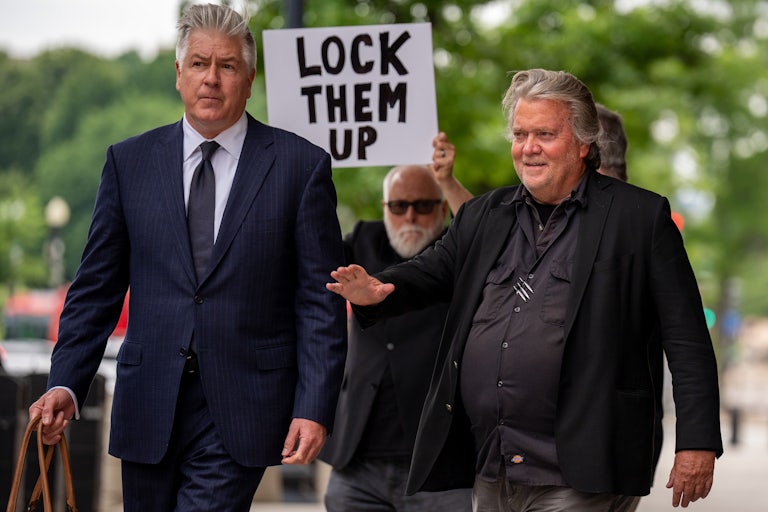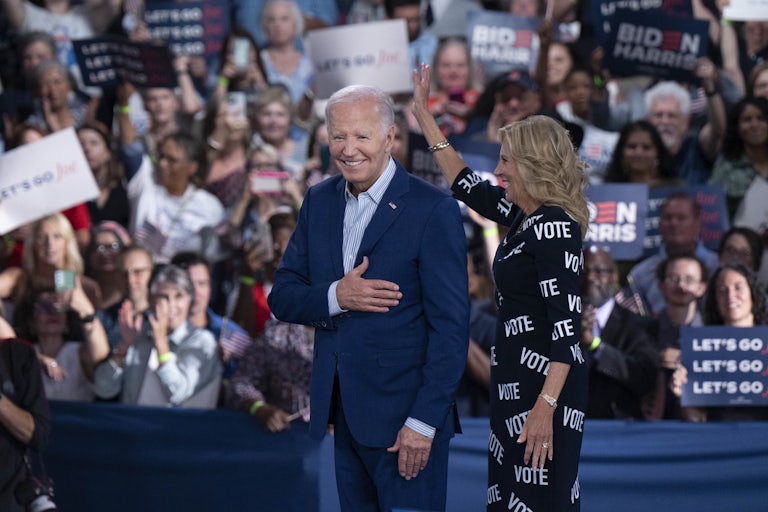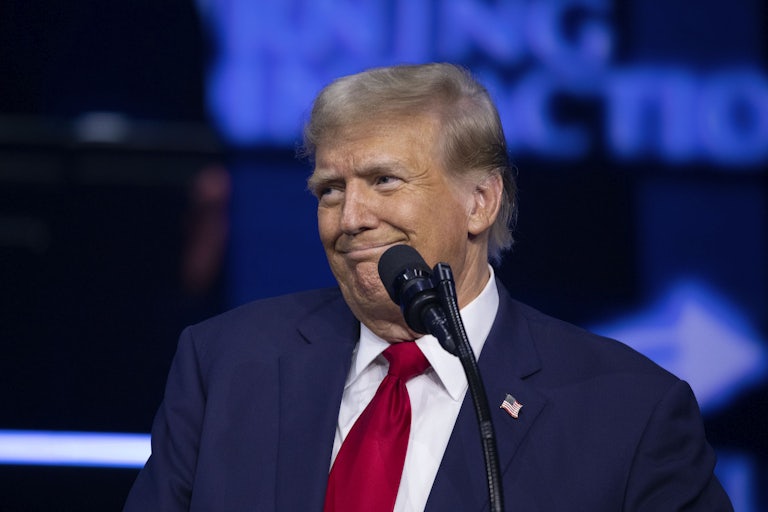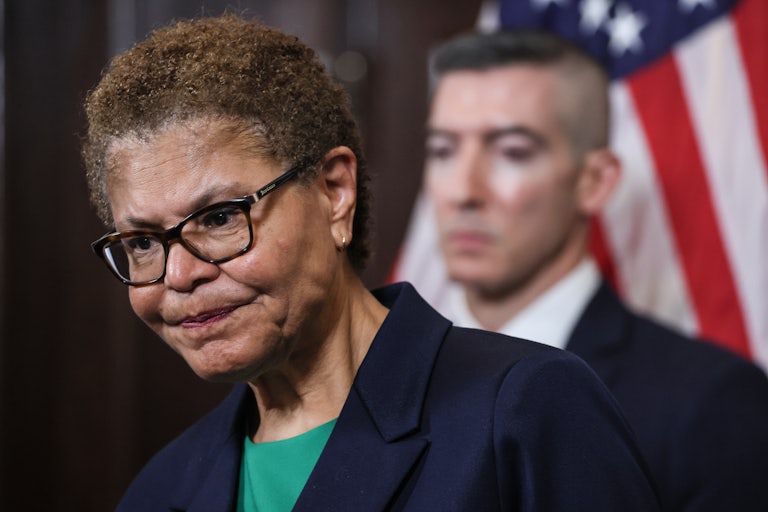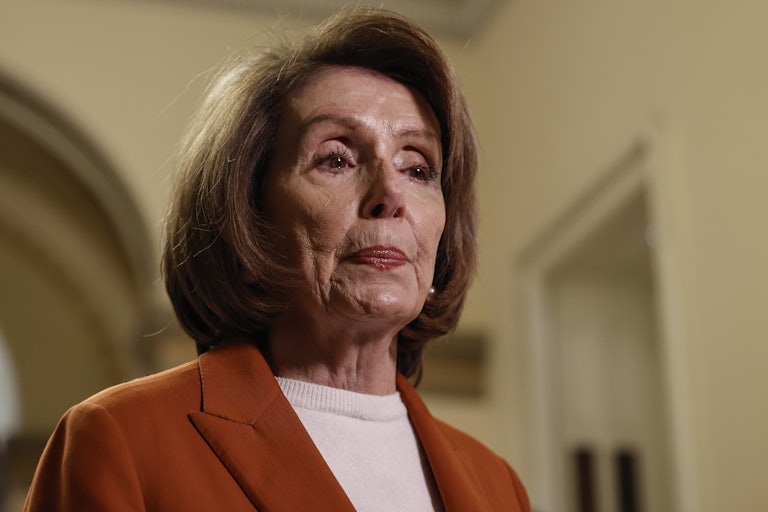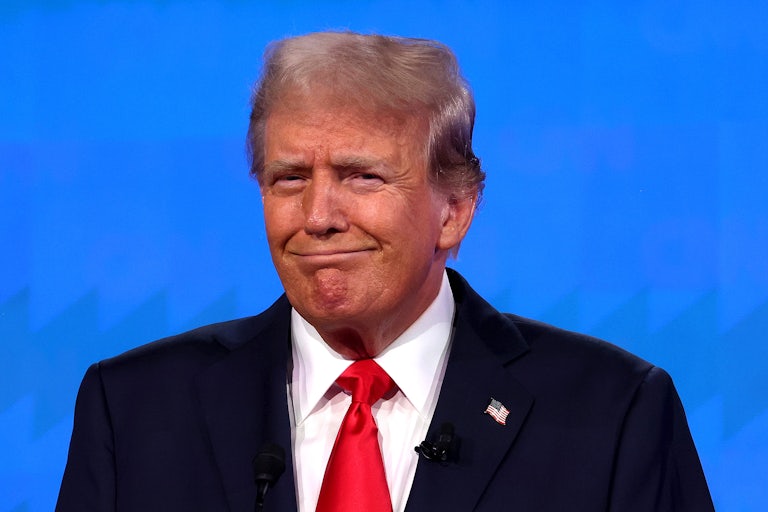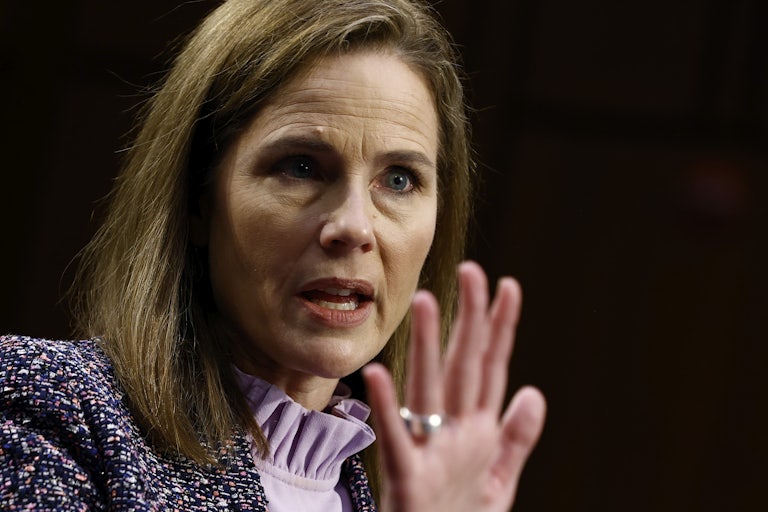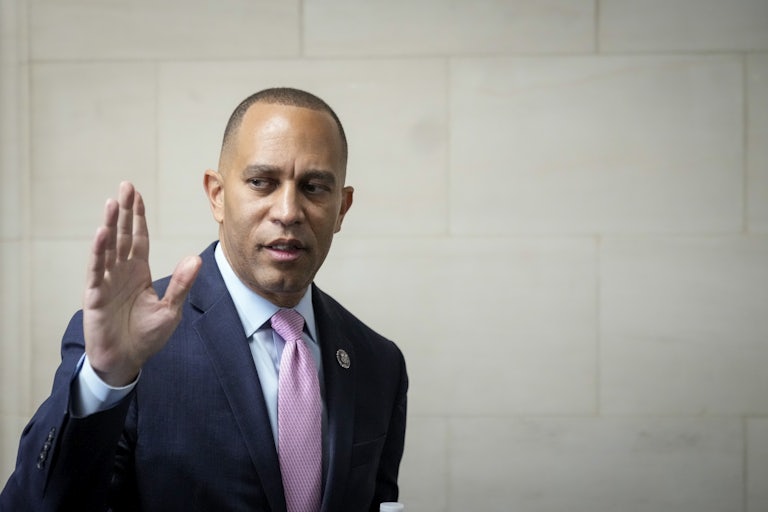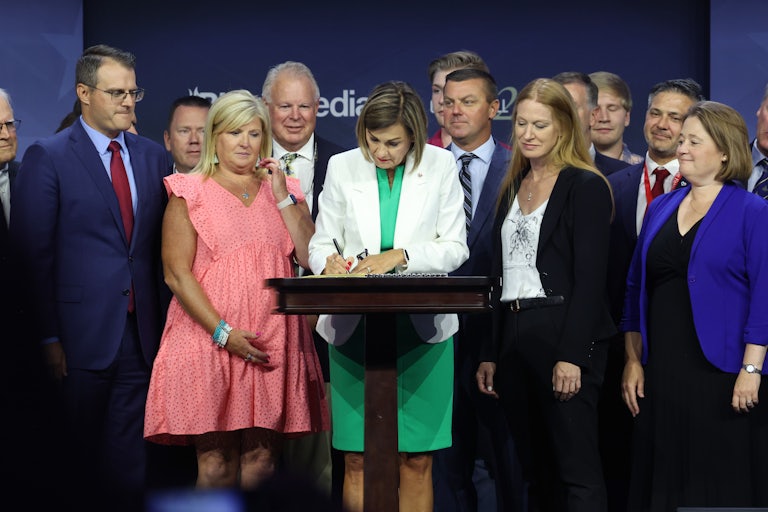Trump Begs Supreme Court for Immunity in Desperate Pre-Ruling Meltdown
Donald Trump is freaking out over the Supreme Court’s impending immunity decision.
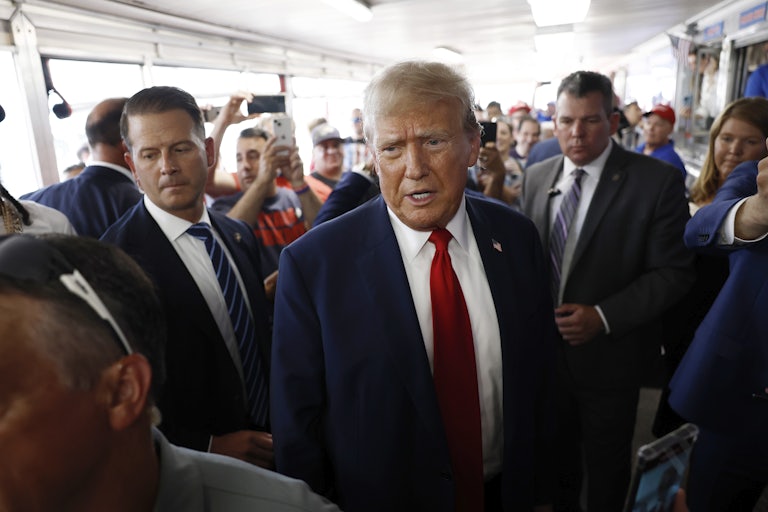
Donald Trump’s Sunday scaries manifested in pathetic fashion Sunday night, as Trump took to Truth Social to beg the Supreme Court to give him “strong presidential immunity” ahead of an impending decision by the court on Monday morning that will determine the fate of his federal election interference case.
“Without Presidential Immunity, a President of the United States literally could not function!” Trump lied Sunday night on Truth Social. “It should be a STRONG IMMUNITY, where proper decisions can be made, where our Country can be POWERFUL and THRIVE, and where Opponents cannot hold up and extort a Future President for Political Gain.”
“It is a BIG decision, an important decision, a decision which can affect the Success or Failure of our Country for decades to come. We want a GREAT Country, not a weak, withering, and ineffective one,” Trump added. “STRONG PRESIDENTIAL IMMUNITY IS A MUST!”
If the Supreme Court sides with Trump, the decision will effectively end special prosecutor Jack Smith’s case against Trump—leaving him with just his 34 felonies (for now). Trump celebrated a ruling by the Supreme Court last week that significantly weakened a statute used to charge more than 300 Capitol rioters and that Trump himself is also charged with. However, as Slate noted, that decision crystallized charges against Trump—despite the gains it gave to his loyalist, rioting followers.
Trump has repeatedly floated pursuing criminal cases against his political rivals and vowing revenge. Only recently has Trump adjusted his meaning to claim “the best revenge is the success and prosperity of all Americans.”
Trump has sought absolute immunity from criminal charges, arguing in part that criminal charges for criminal actions he took while president would have a chilling effect on future presidents. In February, the D.C. Court of Appeals rejected that argument, and during oral arguments, the Supreme Court in April seemed similarly skeptical of the argument.
